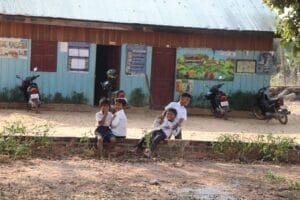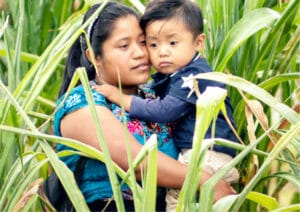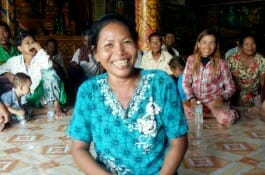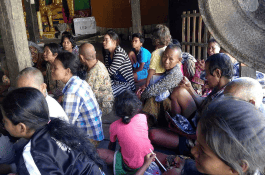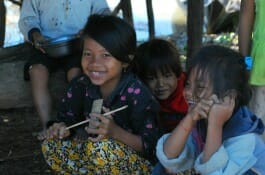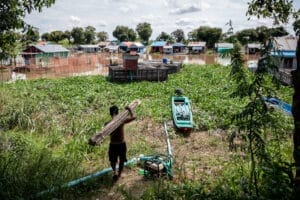
The project aims to contribute to the full and universal respect of human rights for rubber and banana plantation workers.…
Discover moreCambodia is one of the poorest, most unequal and most problematic countries in terms of human rights protection in Asia. WeWorld has been present in the country since 2009 with programs focused on primary education, child protection, youth employment, safe migration and human rights.
About 65% of Cambodia's population is under the age of 30, positioning Cambodia as one of the youngest nations globally. These young people have immense potential to drive positive change, but to fully realize it they must have access to the skills and opportunities they need to influence leaders and give an effective contribution. Over the past two decades, the Cambodian economy showed significant growth until the COVID-19 pandemic triggered a significant contraction. As of 2023, the economy recovered, reaching growth rates of about 5.4%. However, the proportion of the population living below the national poverty line (equivalent to 10,951 riel or US$2.70) remains at 17.8%. Most of the active population is employed in the informal economy or in vulnerable forms of work. This arrangement increases marginalization and leads many people to undertake unsafe migration to seek better opportunities in urban areas or abroad.
Children and young people are among the ones hit the hardest by the current situation: most of them drop out of school to work and help their parents earn money, mainly to repay debts incurred by financial institutions or private lenders. Approximately, only 62.2% of Cambodia’s relevant age group successfully complete lower secondary education.
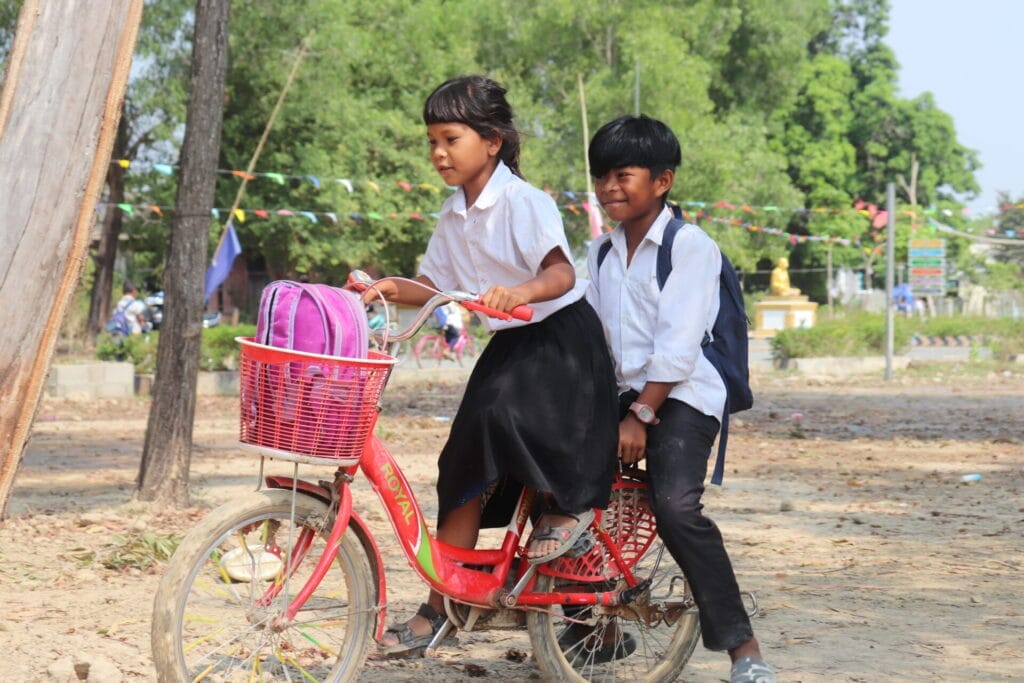
We have been active in Cambodia since 2009, where we collaborate with local NGOs on different issues. Over the years, we have expanded our areas of intervention: nowadays we are working in 10 provinces of the Country.
Our central coordination office is situated in Phnom Penh, complemented by an additional office in Siem Reap Province. Moreover, through our partnerships, we maintain a presence in the provinces of Svay Rieng, Prey Veng, Pursat, Kampong Chhnang, Tbong Khmum, Kampong Cham and Kampong Thom. Within the countryWeWorld’s core focus areas include enhancing the basic education system, advocating for the right to work, and promoting safe migration.
In the field of education, our organization is committed to supporting basic education by addressing truancy among vulnerable children in rural areas. Utilizing a dedicated application, we identify students with extended absences or academic challenges that may put them at risk of dropping out. Our interventions include scholarship programs, remedial classes, and home visits. Additionally, we enhance the overall quality of education through teacher training, provision of school materials, establishment of libraries, and ensuring breakfast for students in rural schools. Since 2020, we have expanded our efforts to assist young job seekers by establishing employment centers that provide information on courses, internships, and job opportunities.
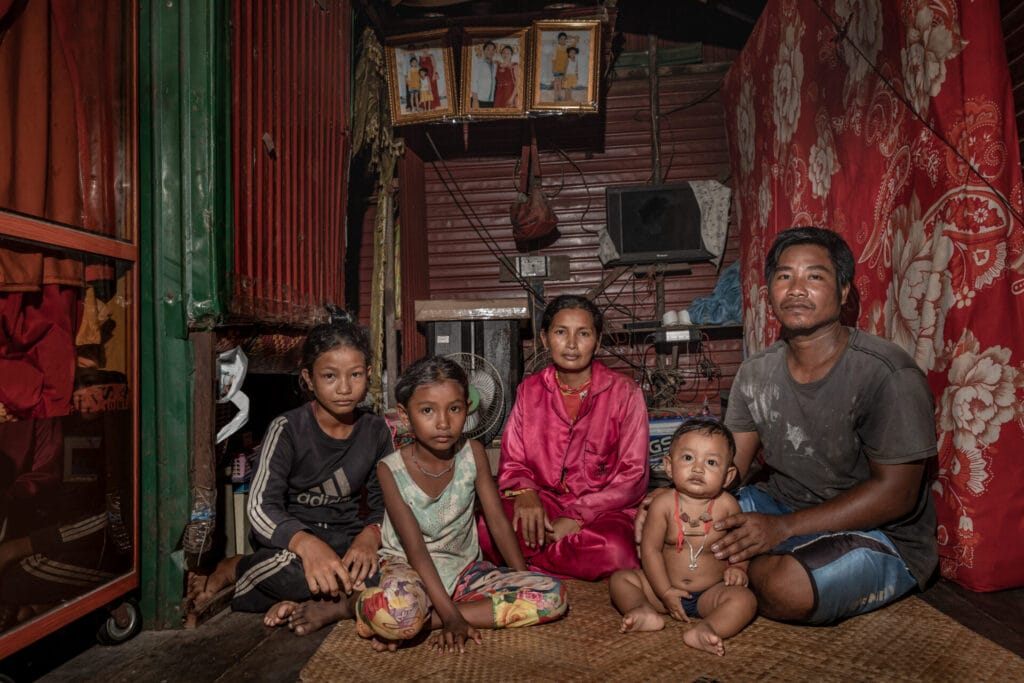
In the field of migration, we are currently working with communities and civil society actors to ensure safe migration and to reduce human trafficking incidents. We organize training courses to improve their synergies with local public authorities and thus ensure better management of cases of abuse, trafficking and exploitation. We have also activated awareness campaigns on the issues of labor law, human rights and safe migration. Furthermore, our partners provide legal support to migrants in the event of trafficking or abuse incidents.
Regarding the area of human rights, we aim to enhance working conditions in the rubber and banana sectors. To achieve this, we actively collaborate with national and international stakeholders to ensure that labor imperatives and human rights are woven into policies, regulatory frameworks, programs, and sector budgets. Additionally, we work to raise awareness among companies, investors, and other stakeholders about the costs associated with human rights and labor violations, encouraging commitment to human rights and decent working conditions. Our efforts extend further to empower workers. We focus on enhancing the skills of plantation workers, community organizations, unions, and labor rights advocates. This involves monitoring compliance with international obligations, reporting violations, participating in political dialogue, and influencing decision-making processes.
The project aims to contribute to the full and universal respect of human rights for rubber and banana plantation workers.…
Discover moreThe project aims to strengthen educational communities to contribute to the fulfillment of social and economic rights for vulnerable children…
Discover moreEND CLIMATE CHANGE, START CLIMATE OF CHANGE is a project funded by the European Commission in the framework of the…
Discover moreIn the last years, more than one million Cambodian migrants have been forced to cross the border toward Thailand, due…
Discover moreSince 2013, the number of Cambodian migrants in Thailand has been increasing every year. In 2015 there were up to…
Discover moreIn Cambodia over one-third of the population lives below the official poverty line. Poverty, lack of jobs, physical violence are…
Discover moreInternational migration among Cambodian migrants, particularly those living in provinces along the border with Thailand, is largely irregular, without proper…
Discover moreThe project aimed to the farmers living in the Siem Reap province and to their families, guaranteeing their Zero hunger…
Discover moreThe project targeted the poorest family members in participating rural areas (with particular attention to large families), farmers without land…
Discover moreThe project concerned 420 families (400 for agricultural activities and 20 for herding activities), 1,300 children, 80 local promoters to…
Discover more